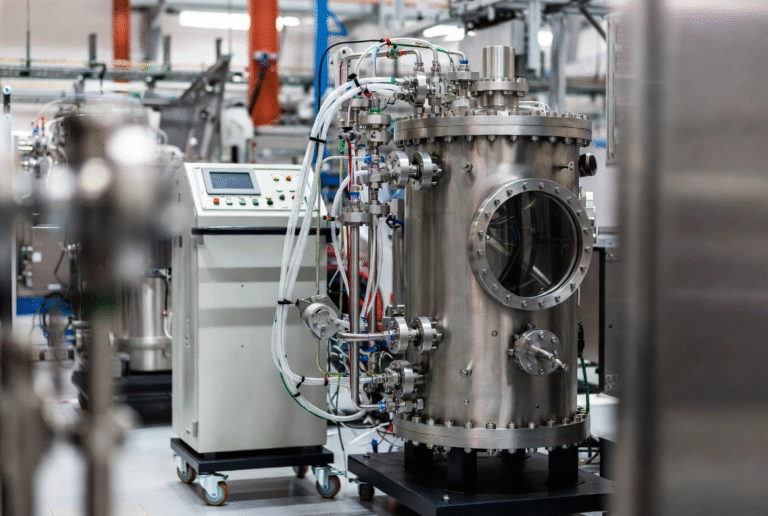
In the world of mobile processors, the Exynos 1380 stands out as one of Samsung’s cutting-edge innovations, offering a blend of efficiency, power, and impressive benchmark scores. Among the key performance indicators for any chipset is its Antutu score, which offers a comprehensive look at its capabilities. In this article, we will delve into the Exynos 1380 Antutu score, exploring its performance, its significance, and how it compares to other processors in the market.
Understanding Exynos 1380
The Exynos 1380 is a mid-range mobile chipset developed by Samsung Electronics. This SoC (System on Chip) is built with the latest 5nm process technology, which ensures a balance between high performance and energy efficiency. With integrated ARM Cortex cores and the Mali-G78 MP5 GPU, it provides a seamless experience for users demanding high performance without compromising battery life.
Key Features of Exynos 1380
- 5nm Process Technology: The Exynos 1380 is manufactured using the advanced 5nm process, allowing for enhanced performance and lower power consumption compared to previous generations.
- Octa-Core CPU: With four Cortex-A78 cores and four Cortex-A55 cores, the Exynos 1380 delivers a balanced performance with excellent multi-tasking capabilities.
- Mali-G78 MP5 GPU: Equipped with this powerful GPU, the chipset delivers a smooth visual experience for gaming, multitasking, and graphical rendering.
- AI Performance: The Exynos 1380 features an integrated AI engine, enabling enhanced performance for tasks like photography, video editing, and real-time applications.
What is Antutu Benchmark?
Before we dive into the Exynos 1380 Antutu score, it’s essential to understand what Antutu is. Antutu is a popular benchmarking tool that evaluates a device’s overall performance based on CPU, GPU, UX, and memory performance. The score is a combined result of these different categories, giving consumers an understanding of the raw performance potential of the hardware.
Why Antutu Score Matters
Antutu scores are an essential factor when purchasing a smartphone or evaluating a chipset. A higher Antutu score indicates that the processor is capable of handling demanding applications, including gaming, multitasking, and high-resolution content. It also helps consumers compare chipsets across various devices in terms of processing power and efficiency.
Exynos 1380 Antutu Score Breakdown
When it comes to the Antutu score, the Exynos 1380 delivers an impressive result, with a score that places it in the mid-range category. The Exynos 1380’s Antutu score typically falls around 500,000 to 550,000 points, depending on the specific device and the software optimization. This score is a testament to its solid performance, making it a strong contender in the mid-range smartphone market.
Key Performance Categories
- CPU Performance: The CPU plays a significant role in the Antutu score, and the Exynos 1380 excels in this area. The combination of Cortex-A78 and Cortex-A55 cores ensures that the processor can handle multi-core tasks efficiently, contributing significantly to its Antutu score.
- GPU Performance: The Mali-G78 MP5 GPU in the Exynos 1380 offers excellent graphics processing power, making it suitable for gaming and high-definition media consumption. This GPU delivers smooth frame rates, even during graphically intense applications, helping to achieve a high Antutu score.
- Memory and Storage: With support for LPDDR4x memory and UFS 3.1 storage, the Exynos 1380 ensures fast data transfer speeds, contributing to the overall high performance. This results in quicker app loading times and seamless multitasking.
- AI Performance: The AI engine embedded in the Exynos 1380 optimizes processing tasks for applications like photography, video editing, and other real-time data-driven applications, further boosting the chip’s overall Antutu score.
How Does the Exynos 1380 Compare to Other Chipsets?
To put the Exynos 1380 Antutu score into perspective, it’s crucial to compare it to other mid-range and high-end processors on the market.
Exynos 1380 vs Snapdragon 7 Gen 1
The Snapdragon 7 Gen 1 is a direct competitor to the Exynos 1380, often found in mid-range Android smartphones. It delivers a similar Antutu score ranging from 500,000 to 550,000 points, placing both processors in the same performance tier. However, Snapdragon 7 Gen 1 typically offers better thermal management, making it more suitable for extended gaming sessions.
Exynos 1380 vs MediaTek Dimensity 1200
The MediaTek Dimensity 1200 is another prominent chipset in the same segment. It boasts a comparable Antutu score of around 500,000 to 600,000 points. The Dimensity 1200 excels in areas like 5G connectivity and AI-driven applications, while the Exynos 1380 stands out for its power efficiency and smoother multitasking performance.
The Benefits of Exynos 1380
The Exynos 1380 offers several benefits that make it an appealing choice for users looking for a balanced chipset. Here’s why it’s worth considering:
- Energy Efficiency: Built with 5nm technology, the Exynos 1380 ensures that power consumption is optimized, leading to longer battery life even during demanding tasks.
- AI Capabilities: The integrated AI engine allows for smarter processing of tasks, from camera optimization to user experience enhancements, delivering a more intelligent smartphone experience.
- Gaming Performance: Thanks to its powerful Mali-G78 GPU, the Exynos 1380 excels in handling graphically demanding games, offering smooth gameplay without significant lag or stuttering.
- Fast Data Processing: With LPDDR4x memory and UFS 3.1 storage, the Exynos 1380 ensures quick application loading times and smooth multitasking, giving users a fluid smartphone experience.
Drawbacks of Exynos 1380
While the Exynos 1380 is a solid performer, it has some drawbacks that may affect its overall appeal:
- Thermal Throttling: During extended periods of heavy use, such as gaming or video rendering, the Exynos 1380 may experience some thermal throttling, which can affect performance.
- Competition from Snapdragon: The Snapdragon 7 Gen 1 and other competing processors sometimes outperform the Exynos 1380 in specific benchmarks, particularly in areas like gaming and 5G connectivity.
Conclusion
The Exynos 1380 delivers excellent performance for a mid-range chipset, offering a solid Antutu score, great gaming performance, and energy efficiency. It is ideal for those who want a balance between power and battery life without breaking the bank. However, those looking for the ultimate gaming experience or cutting-edge 5G capabilities might want to explore other high-end processors.
FAQs
- What is the Antutu score of Exynos 1380?
- The Exynos 1380 typically scores around 500,000 to 550,000 points on Antutu, placing it in the mid-range performance category.
- The Exynos 1380 typically scores around 500,000 to 550,000 points on Antutu, placing it in the mid-range performance category.
- How does Exynos 1380 perform in gaming?
- The Mali-G78 MP5 GPU ensures smooth gameplay with high frame rates, making it suitable for graphic-intensive games.
- The Mali-G78 MP5 GPU ensures smooth gameplay with high frame rates, making it suitable for graphic-intensive games.
- What are the benefits of 5nm technology in Exynos 1380?
- 5nm technology enhances energy efficiency and allows the chip to deliver better performance with lower power consumption.
- 5nm technology enhances energy efficiency and allows the chip to deliver better performance with lower power consumption.
- How does Exynos 1380 compare to Snapdragon 7 Gen 1?
- Both processors deliver similar Antutu scores, but Snapdragon 7 Gen 1 excels in thermal management, while Exynos 1380 offers better battery efficiency.
- Both processors deliver similar Antutu scores, but Snapdragon 7 Gen 1 excels in thermal management, while Exynos 1380 offers better battery efficiency.
- Is Exynos 1380 suitable for heavy multitasking?
- Yes, the Exynos 1380 provides excellent multi-core performance, allowing for smooth multitasking with LPDDR4x memory and UFS 3.1 storage.
- Yes, the Exynos 1380 provides excellent multi-core performance, allowing for smooth multitasking with LPDDR4x memory and UFS 3.1 storage.







